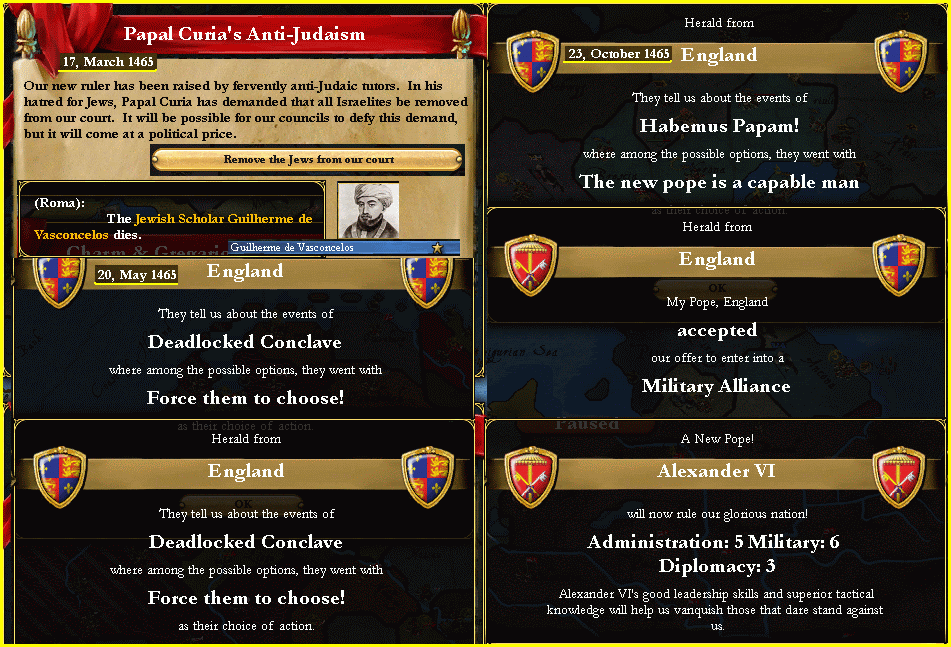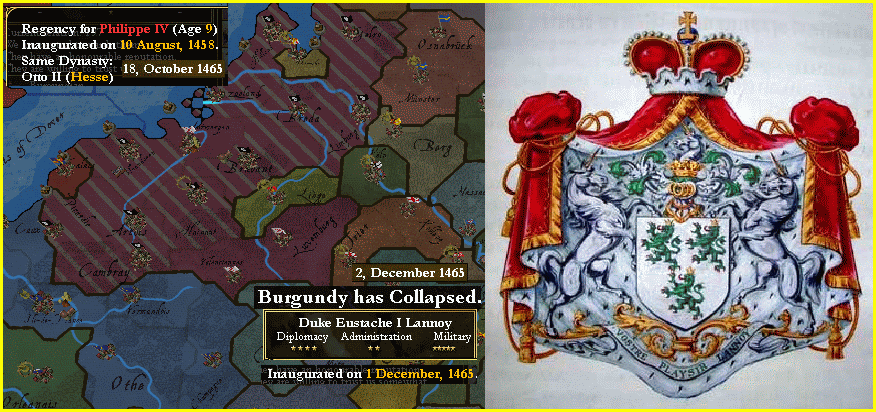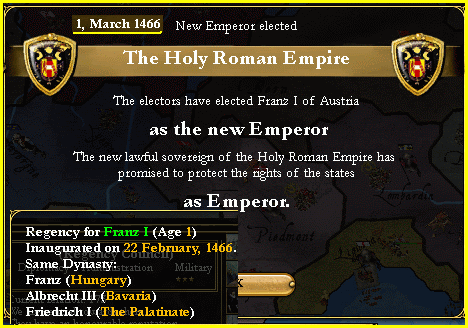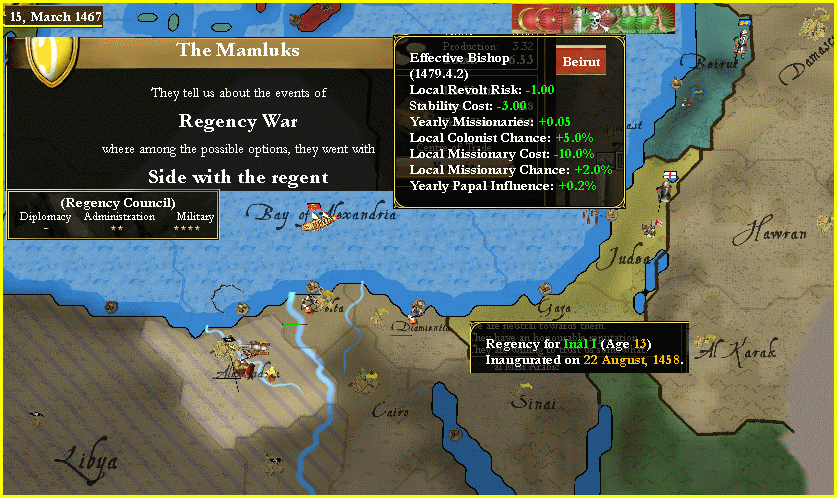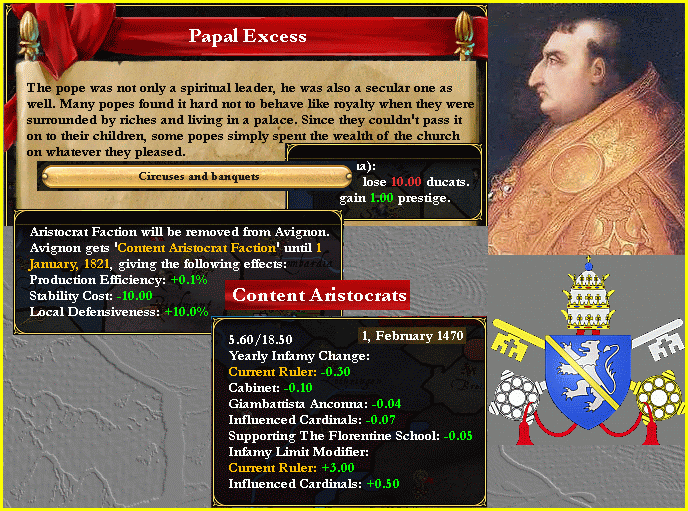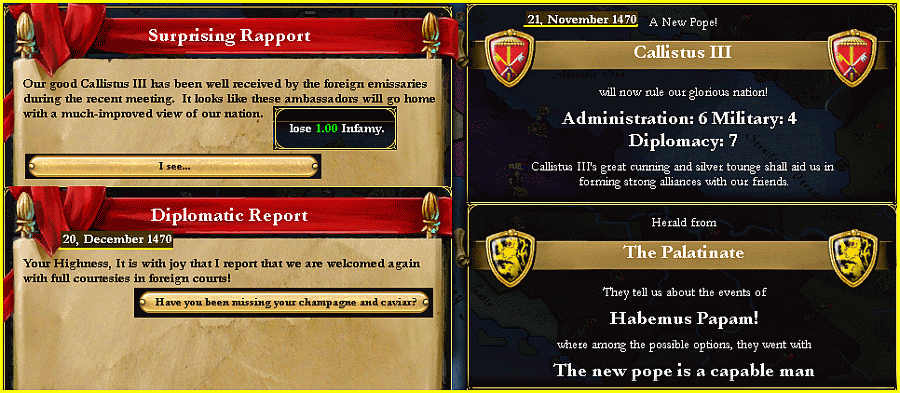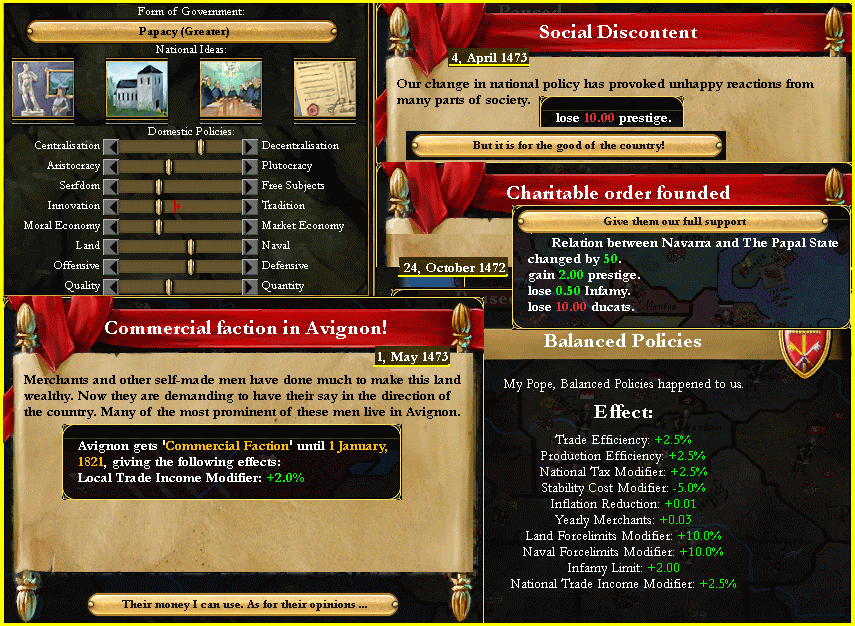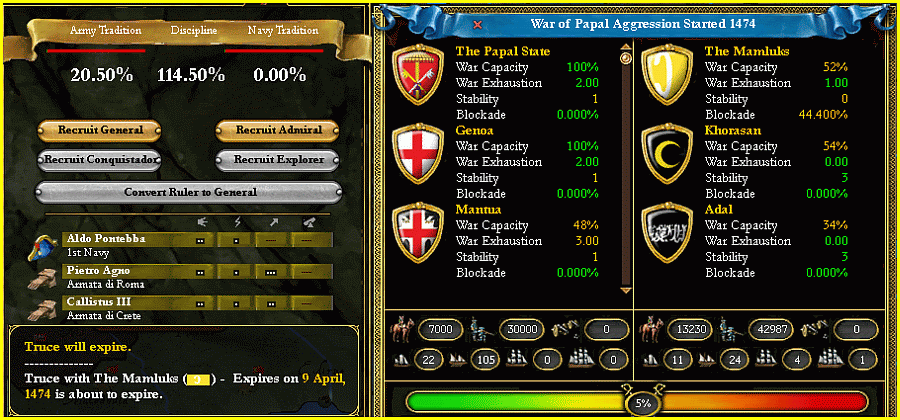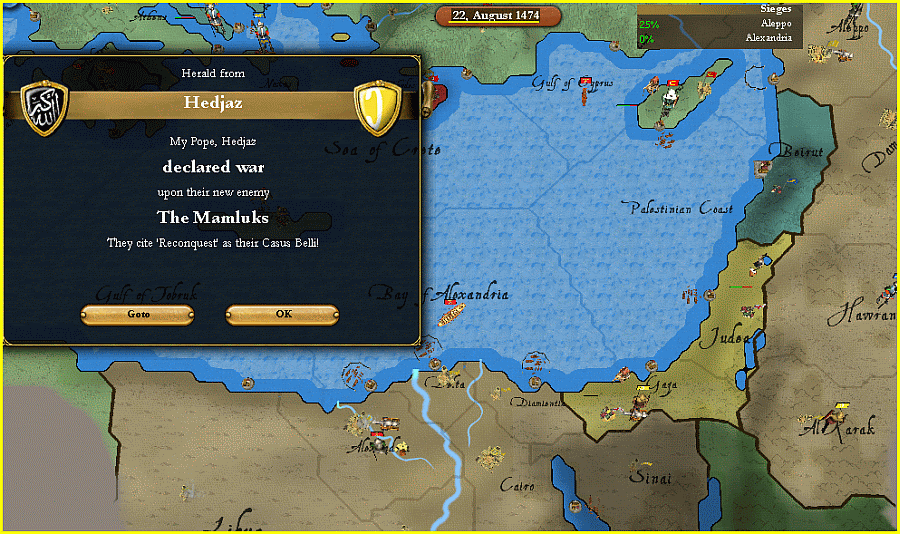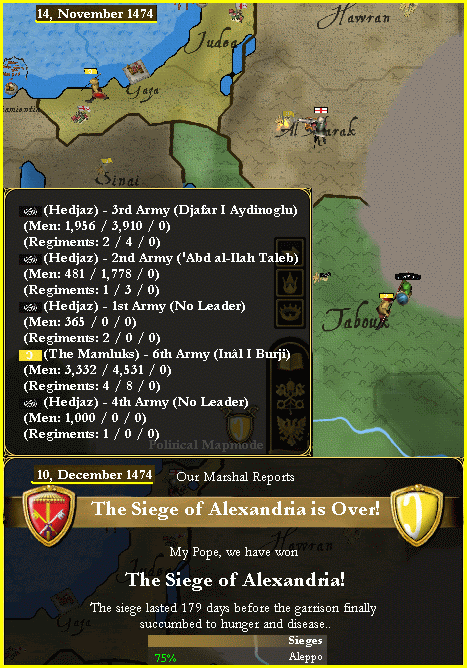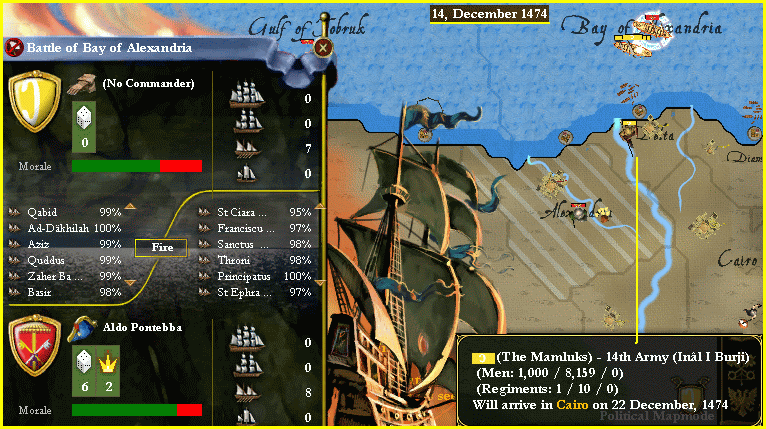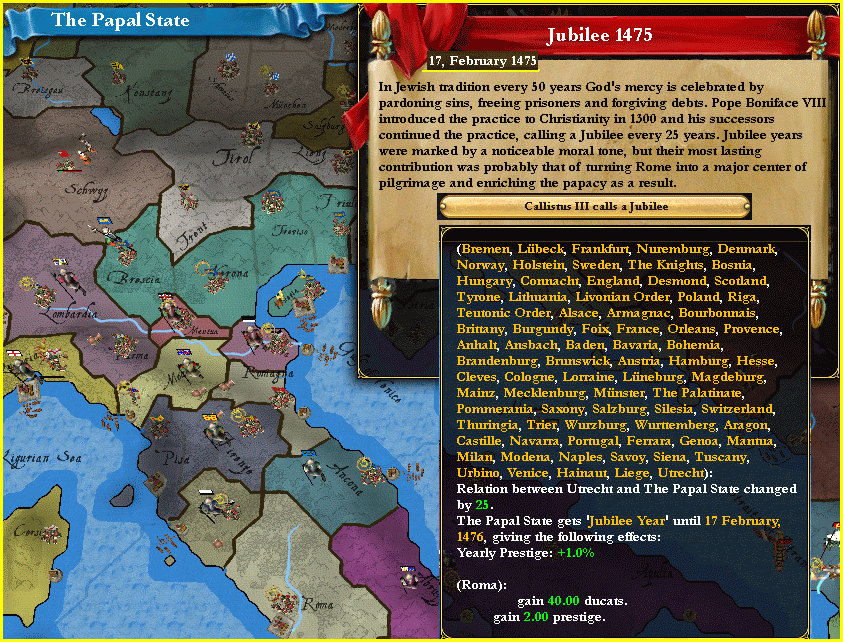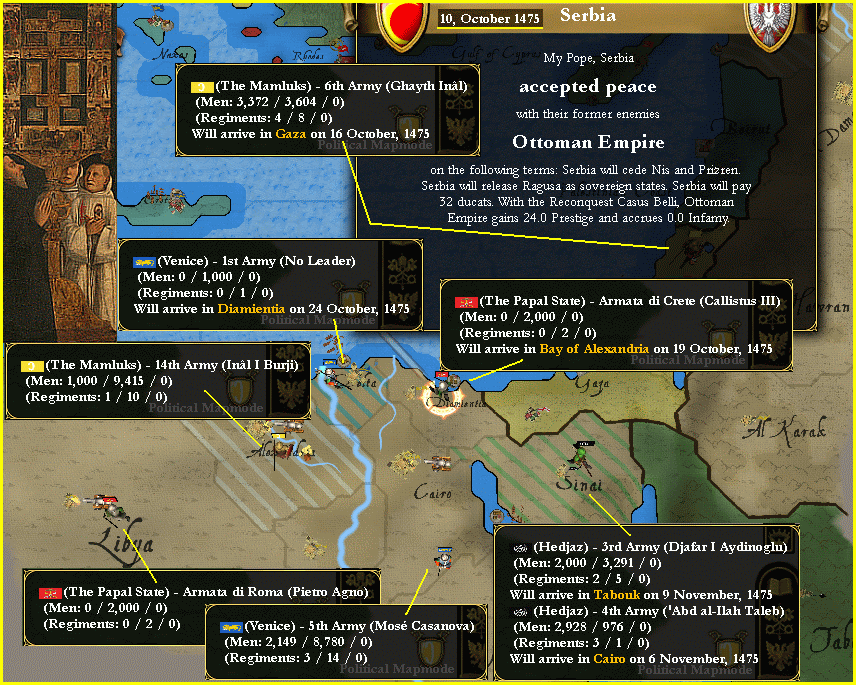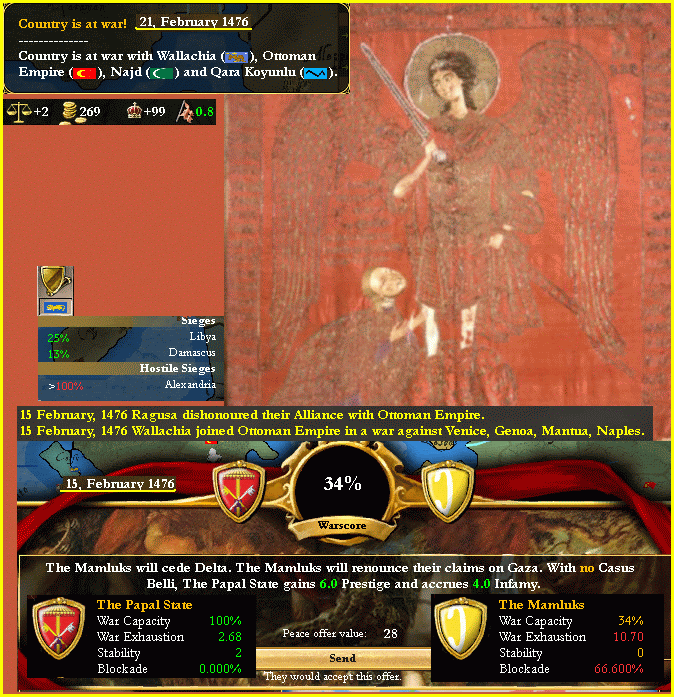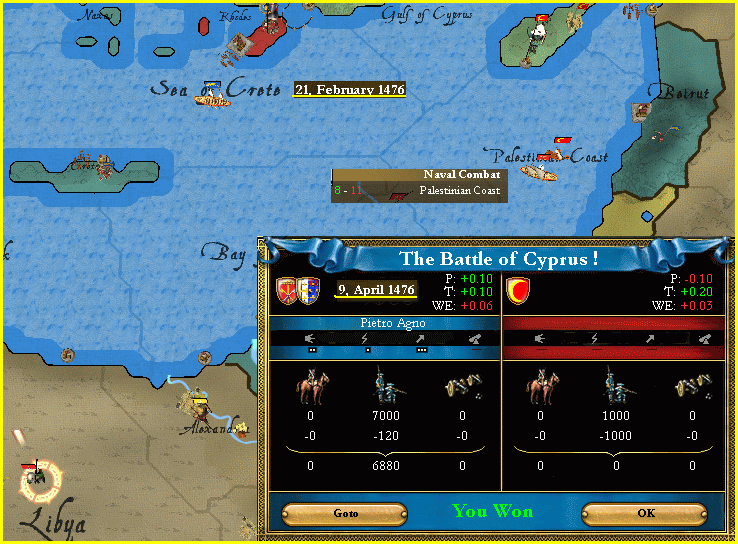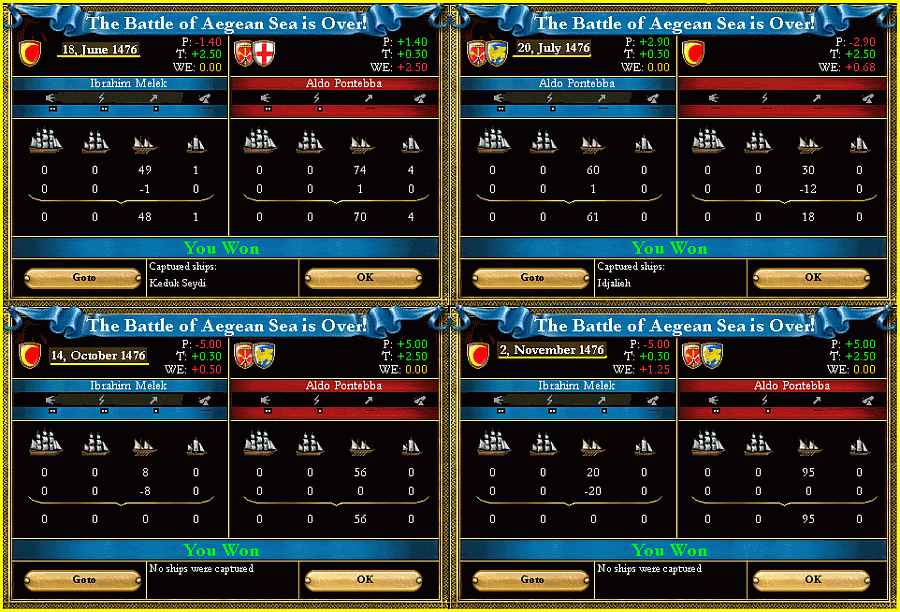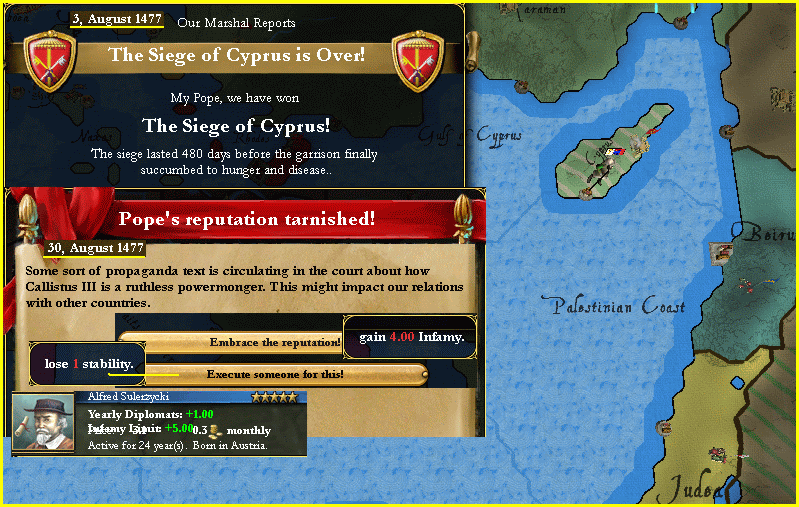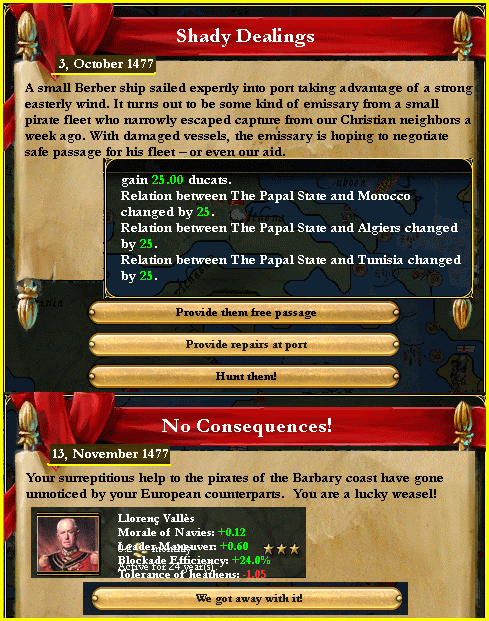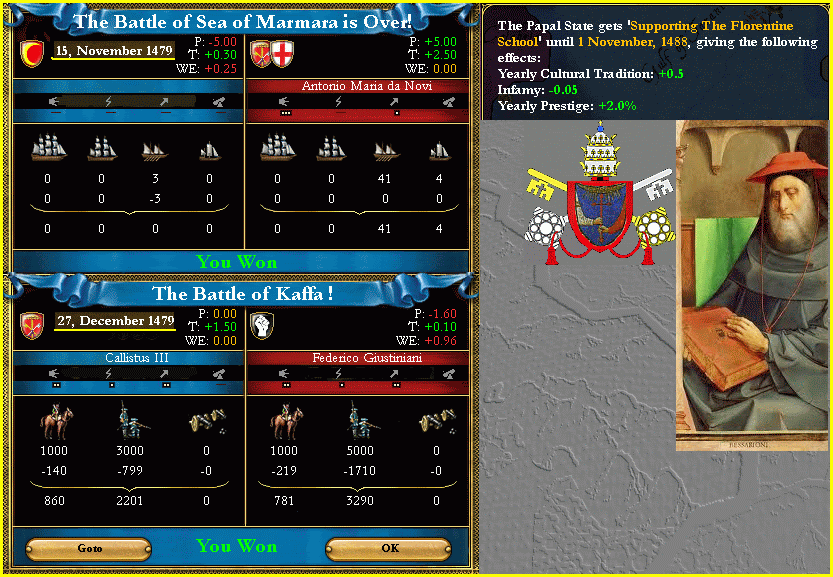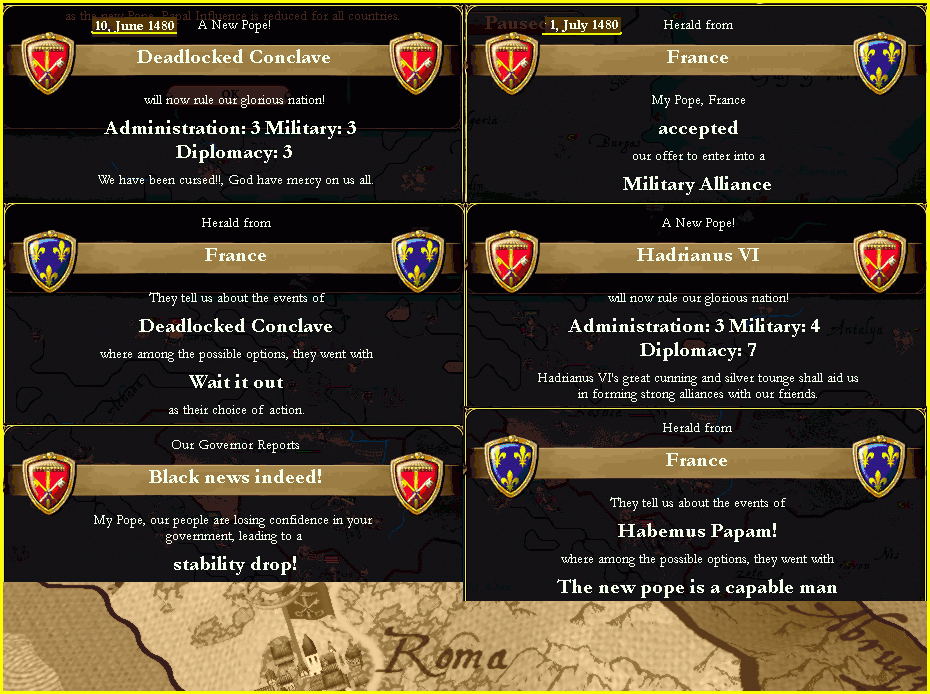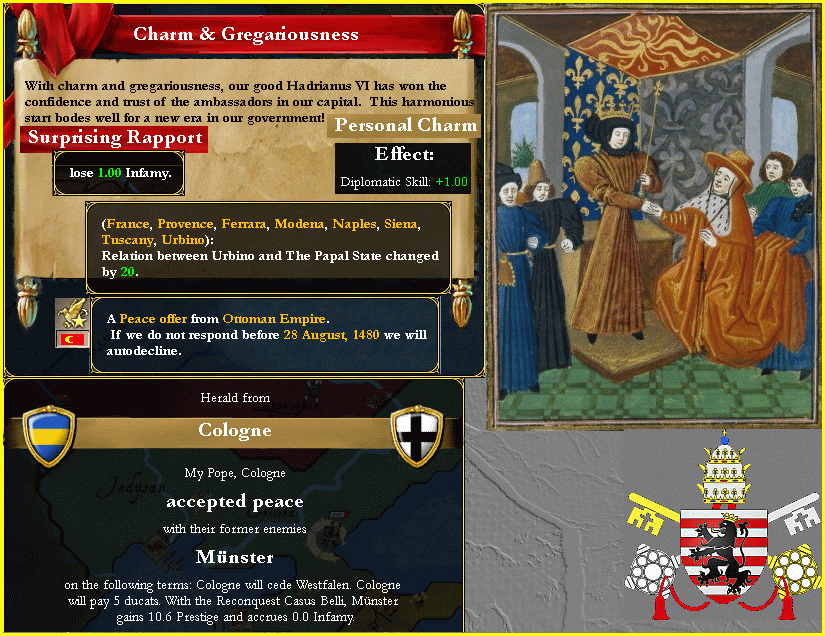Yay Crusade! But holy mackinaw, Norway.  I hope they got frequent sailor miles for that; logistics would be a nightmare.
I hope they got frequent sailor miles for that; logistics would be a nightmare.
As far as HttT trade leagues go, a good reason to be in one is to negate the malus you would receive from high infamy. The short version is that if you're in a league, the game will calculate your compete chance by evaluating your chance and the league leader's chance. It will use the better value, so if you go through a patch where you're warring frequently or otherwise racking up infamy, then being in the league will prevent your merchants from getting run out of town due to your dastardly ways.
There's a superbly detailed explanation in this post, if you really want to delve into the nuts and bolts.
The biggest downside is that you can't create new CoTs, but if you start with one and are already in a league (like in my England game) then you get the best of both worlds. This is why I protect the hell out of Lübeck.
As far as HttT trade leagues go, a good reason to be in one is to negate the malus you would receive from high infamy. The short version is that if you're in a league, the game will calculate your compete chance by evaluating your chance and the league leader's chance. It will use the better value, so if you go through a patch where you're warring frequently or otherwise racking up infamy, then being in the league will prevent your merchants from getting run out of town due to your dastardly ways.
There's a superbly detailed explanation in this post, if you really want to delve into the nuts and bolts.
The biggest downside is that you can't create new CoTs, but if you start with one and are already in a league (like in my England game) then you get the best of both worlds. This is why I protect the hell out of Lübeck.


